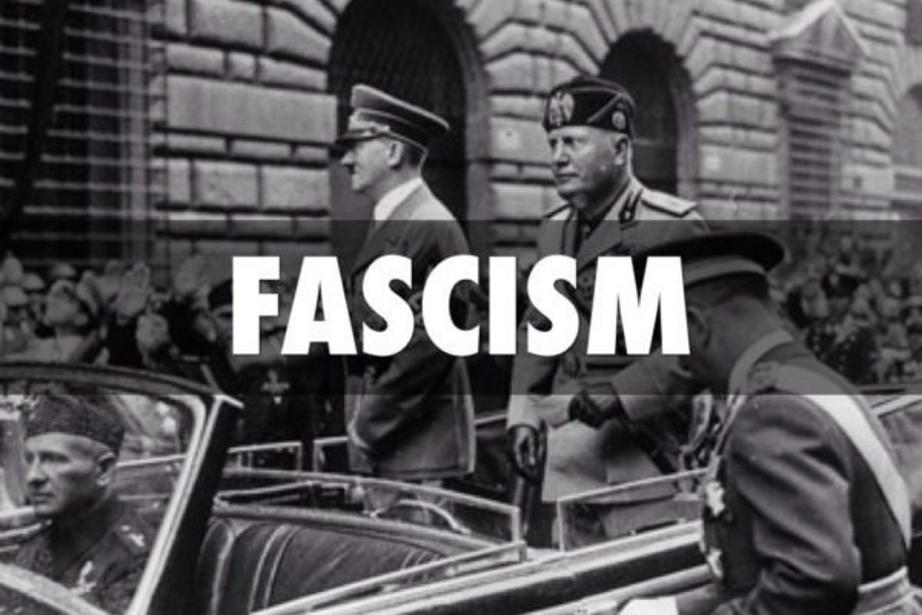Unraveling political theory: what is fascism?
To understand the world of politics and change it for the better, it’s paramount that people begin to study political theory and the ways in which it has manifest throughout history up into the present day. By bringing light to the origins of political and philosophical thought, the present day becomes all the more explainable because one is now able to see the logical progression of such manifestations.
With this urge to better understand the root of many of the common political ideologies present in the world, The Last American Vagabond has decided to team up with Keith Preston in a new podcast series in which the who, what, where, when and how of different political theories will be explored.
INTRODUCTION
For those unaware, Keith Preston was born in Lynchburg, Virginia, United States. He received a B.A. in Religious Studies and an M.A. in History from Virginia Commonwealth University in Richmond, Virginia, with additional graduate study in Sociology and Criminology. Keith is a former instructor of Sociology at John Tyler Community College. He is a former regional delegate for the Industrial Workers of the World and a former member of the National Committee of the Workers Solidarity Alliance, the U.S. section of the International Workers Association. He is the founder and director of American Revolutionary Vanguard and the chief editor ofAttacktheSystem.com.
Keith has been a contributor to LewRockwell.com, Antiwar.com, Anti-State.com, Taki’s Magazine, and AlternativeRight.com. He was awarded the 2008 Chris R. Tame Memorial Prize by the United Kingdom’s Libertarian Alliance for his essay, “Free Enterprise: The Antidote to Corporate Plutocracy.” Keith has been a featured speaker at conferences of the National Policy Institute and the H. L. Mencken Club. He has been interviewed on numerous internet podcast and radio programs and appeared as a guest analyst on Russia Today and BBC Persian. He is also host of the ongoing “Attack the System” online podcast series.
Episode 8: Fascism
In episode 8, Keith and Tim discuss fascism, a term that many people throw around loosely, but hardly have any historical or intellectual understanding as to what it really means. Just like many on the right will label anyone on the left that they deem corrupt as a communist, the same logic applies to the left and how they label anyone on the right they deem corrupt to be a fascist. This misplaced hostility towards one another is at the heart of why the world can’t progress towards peace. How can society resolve its differences if it doesn’t even understand the ideas of its past? Coming to terms with these movements and what they represented is at the core of what this podcast is all about.
The truth is that fascism is a very distinct movement that has its roots in Benito Mussolini’s rule of Italy, which was an ideological outgrowth of World War I; the first war where most of the world was involved. Due to a heightened sense of militarism that resulted from WWI and the financial poverty that people witnessed from The Great Depression, fascism arose as a revolutionary movement from the political right, with the purpose of abolishing the old liberal order, which had so clearly failed them. Unlike traditional conservatism, which wanted to preserve the established system, fascism was revolutionary in that it wanted to create a new society based upon a unified militaristic state, whereas the leader was a direct embodiment of the will of the people and the state was involved in everything.

(Benito Mussolini, the fascist leader of Italy from 31 October 1922 – 25 July 1943)
Just as the case with most political movements that gain large-scale acceptance, the corrupt elements of statism took hold and the state become far more powerful than it should be, more often than not to the detriment of the people. This was particularly evident in Hitler’s Germany, as the state was involved in everything, even excessively spying on its own citizens through the Stazi. Questioning the state was one of the highest crimes in a fascist society, making flexible change through the will of the people extremely difficult, if not impossible. Fascists often claim that the state is organic, but is it not contradictory that an organic state be ruled by state force?
The goal of the following podcast is to both give people an honest education of just how fascism formed, as well as provide the proper context with which to view fascism. Contrary to some popular beliefs, fascism is just one political ideology that took on corrupt statism in its real life form amongst a plethora of others that did the same, which were previously discussed in earlier podcasts. In fact, all political ideologies can be infiltrated and used against the people, so thinking fascism is alone in its real world application is misleading. It’s important people take the time to learn the different ideological threads, because only when they can put them all together into a coherent picture can society truly evolve into something greater.

